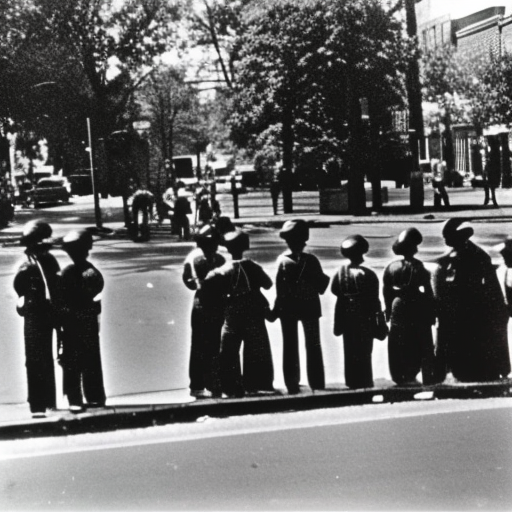The Stonewall Riots (1969)
The Stonewall Riots were a series of spontaneous demonstrations by members of the LGBTQ+ community in response to a police raid that took place in the early morning hours of June 28, 1969, at the Stonewall Inn in the Greenwich Village neighborhood of Manhattan, New York City. The riots are widely considered a pivotal moment in LGBTQ+ history and the catalyst for the modern LGBTQ+ rights movement.
The Background
During the 1960s, LGBTQ+ individuals faced widespread discrimination and harassment. Homosexuality was illegal in most states, and police often raided bars and establishments known to be frequented by LGBTQ+ people. The Stonewall Inn, owned by the Mafia, was one such establishment. It operated without a liquor license and was a popular gathering place for LGBTQ+ individuals, particularly those from marginalized communities.
The Raid
On the night of June 28, 1969, police officers raided the Stonewall Inn. They arrested employees and patrons, including drag queens and transgender individuals, for violating laws related to same-sex relations and cross-dressing. The raid quickly escalated into a confrontation as a crowd gathered outside the bar, growing increasingly agitated by the police’s aggressive tactics.
The Riots
The crowd outside the Stonewall Inn began to resist the police, throwing bottles, bricks, and other objects. The police responded with violence, using batons and making arrests. The unrest continued for several nights, with clashes between the police and protestors. The riots drew attention from the media and sparked a wave of activism within the LGBTQ+ community.
The Aftermath
The Stonewall Riots marked a turning point in the fight for LGBTQ+ rights. They galvanized the community and led to the formation of numerous LGBTQ+ organizations and activist groups. The following year, on June 28, 1970, the first Pride marches were held in New York City, Los Angeles, and Chicago to commemorate the anniversary of the riots.
The Impact
The Stonewall Riots brought LGBTQ+ issues to the forefront of public consciousness. They inspired a new wave of activism and advocacy for LGBTQ+ rights, leading to significant advancements in the years that followed. The riots helped to break down societal barriers and challenge discriminatory laws and policies. They also paved the way for the establishment of LGBTQ+ community centers, support networks, and legal protections.
Legacy
The Stonewall Riots are remembered as a symbol of resistance and resilience within the LGBTQ+ community. The Stonewall Inn itself has become a historic landmark and a symbol of LGBTQ+ rights. The riots serve as a reminder of the ongoing struggle for equality and the importance of collective action in the face of oppression.
In conclusion, the Stonewall Riots of 1969 were a watershed moment in LGBTQ+ history. The protests that followed a police raid on the Stonewall Inn sparked a movement that continues to fight for LGBTQ+ rights to this day. The riots brought visibility to the struggles faced by the community and paved the way for significant advancements in LGBTQ+ rights and acceptance.












